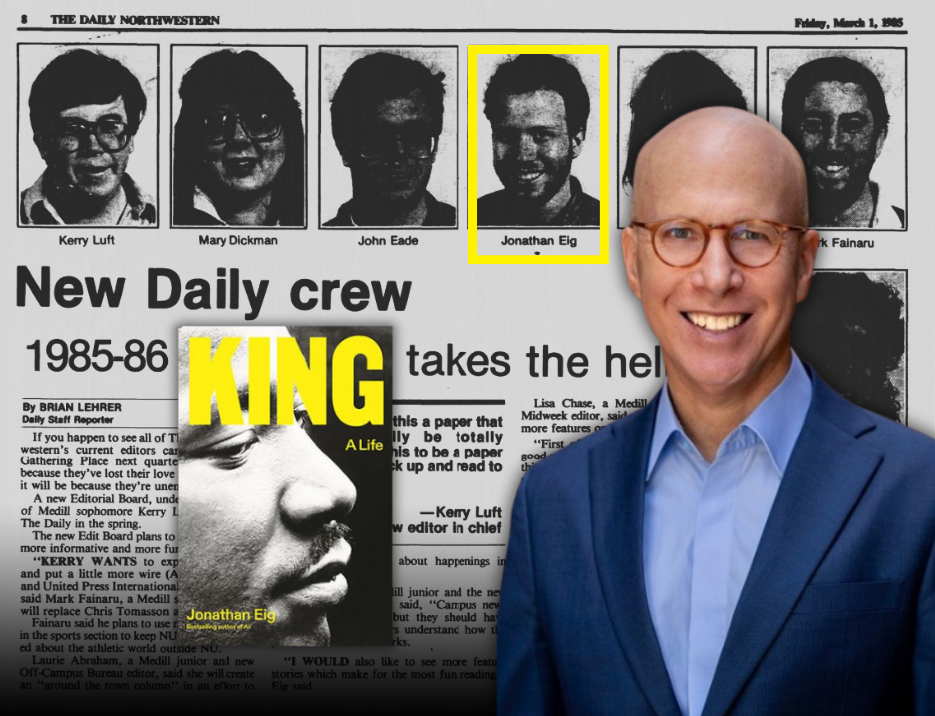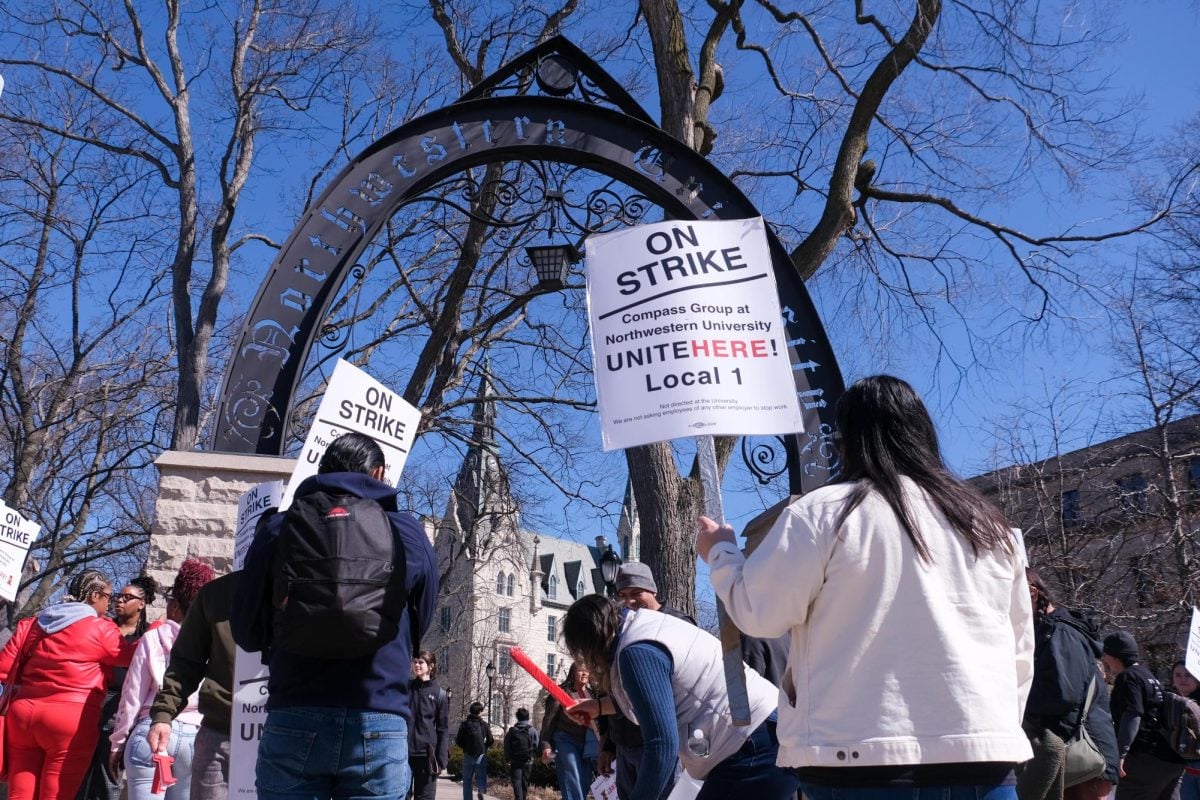Jonathan Eig (Medill ’86) began his journalism career covering high school sports for his hometown paper in Rockland County, New York. After four years in The Daily’s newsroom, Eig became a professional reporter, working for outlets like The Dallas Morning News and The Wall Street Journal.
Now he’s a biographer, writing about the likes of Lou Gehrig, Muhammad Ali and, most recently, Martin Luther King Jr. His new book, “King: A Life,” is a National Book Award Nominee, a New York Times Bestseller and a Barack Obama Summer 2023 Read.
Eig sat down with The Daily to talk student journalism, storytelling and his love for notebooks — from blue reporter’s notebooks to yellow legal pads.
The Daily: What did a typical day in the newsroom look like at The Daily when you were campus editor?
Eig: I showed up there pretty much my first day on campus. I was desperate to start working for The Daily, and I pretty much worked there every day of my four years at Northwestern … It was as big a part of my education as the classes that I took. The students that I worked with, the editors at The Daily, were really important teachers and great friends. I’m still friends with tons of my old Daily colleagues and my Medill classmates as well.
The Daily: When you were writing at The Daily, what types of stories did you jump at the chance to write, and what types of stories did you avoid?
Eig: There was a great rivalry between the campus bureau and the off-campus bureau over who were the more serious journalists, and we were so stupid. But I fell into the campus bureau team and I wanted to be the administration reporter. I was trying to break news and write the biggest stories that would get me on the front page the most. I later learned that I was much better as a feature writer than as a breaking news reporter or an investigative reporter, but I didn’t know that at the time.
The Daily: As journalists, we’re taught to prioritize concision and to make our work very short-form and easy to digest. How did you take those skills and make the jump to longer-form biographies?
Eig: I think the skills are pretty much the same. And even though this book looks like it’s really fat, I think it’s tight. I don’t think there’s a lot of wasted words. I think part of the reason people have been enjoying it is that it doesn’t feel like a really long book, and I don’t waste any time. With a story like “King,” I could have written 2,000 pages and not gotten everything in, so you have to make choices. The things I learned at Medill are exactly the same things I’m using now to write books. It’s reporting and writing, it’s prioritizing information, it’s telling stories concisely, it’s doing good interviews, it’s being a good listener.
The Daily: You’ve mentioned in interviews that you rely on the personal accounts of people who knew these figures in curating their stories. What about first-hand accounts is special to you as an author and historian?
Eig: Well, I love doing interviews. … It’s the best to be able to go out and interview people who were participants and to ask them how it felt. How did it feel to be in the room with Martin Luther King? How did it feel to spend a day with him? What did you do when you were bored, when you and Martin were just hanging out with time to kill? It’s such an incredible opportunity. And that’s what I love most about journalism, is that my notebook is a passport. I was always a really shy kid and I don’t think without that notebook, I would have had the guts to go up and interview people — as a college student or now. But now, because I have my notebook, I can call Jesse Jackson and Andrew Young and Harry Belafonte and say, ‘What was it like to be around Martin Luther King?’ It’s this incredible privilege.
The Daily: In the process of writing what has become a defining biography of Martin Luther King, how did you go about representing the complexities of a quintessential Black American story as a white author?
Eig: I think for any journalist, you have to be humble and know that you don’t know a lot, and you have to work hard to overcome what you don’t know. Anytime I start a story, it’s with an empty notebook. But if I’m writing about a figure like Martin Luther King, who’s Black — and I’m white — I have to work harder, and I have to earn the right to tell his story. And then I’m going to be judged on whether I did a good enough job, whether I brought honor to the story. … Anytime you tell someone else’s story, it’s a huge responsibility. But when you’re telling the story of somebody who is so important to the Black community, I think you have to work a lot harder.
Email: samanthapowers2026@u.northwestern.edu
X: @SQPowers04
Related Stories:
— Q&A: Medill alum Bryan West talks Taylor Swift, dream job
— George R.R. Martin talks storytelling and time at NU at Medill event







